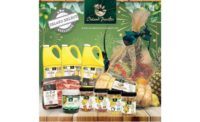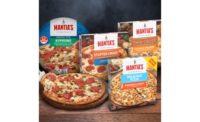Private Label’s “Premium” Move
No longer thought of as a retailer’s ‘generic’ brand, private-label meat products feature improved quality resulting in wider consumer acceptance.
The numbers don’t lie. Information Resources Inc. (IRI) reports increased sales of nearly $1 billion for store and private-label brands in supermarkets during 2003. This figure represents about one-quarter of all new dollars spent at retail, and as a result, store brands established all-time highs in annual market share for dollar volume as well as unit volume.
Private label is also growing faster than national brand products. IRI pinpoints the $1-billion increase in 2003 as showing a 2.2-percent growth for private-label products, compared to the 1.4-percent increase in sales of national brand products, and $42.9 billion in total sales for supermarket brands, another high-water mark for the category.
The reason for this growth is that progressive processors and retailers are making dedicated efforts to move private-label meats away from its decades-old reputation of being lesser-quality products that simply emulate their national brand counterparts. As convenience stores, club, and discount stores continue to grow and expand their meat departments, traditional supermarkets are working harder than ever to create recognizable areas of differentiation between themselves. As Mark Husson — first vice president of Merrill Lynch, who spoke during a session at the 2003 Private Label Manufacturers’ (PLMA) annual Private Label Trade Show — says, “It’s increasingly important that [retailers’ brand] represent something differentiated. [They should be] positive, not just ‘I’m not Wal-Mart’.”
One area that retailers have been dedicated themselves to growing is the ready-to-eat (RTE) section of their stores, which is part of retail’s movement away from jar and canned product and towards fresher offerings.
“The past twelve months have seen supermarkets place a greater emphasis on RTE meals,” explains Brian Sharoff, PLMA’s president. “This movement is working well for the private-label suppliers, as there are very few national brands in this category. Most national RTE products are frozen, so private label has been able to control the fresh side of this category.”
Greg Moore, director of marketing for Atlanta, GA-based Gold Kist echoes Sharoff’s observation. “[At private label] we are seeing broader lines including more fully cooked items. We are also seeing many [private-label retail] customers striving to equal or exceed the quality of national brands.”
Private label has been preaching from the “premium pulpit” since major meat processors including Tyson, Hormel, ConAgra, and Gold Kist started offering private-label programs. Entering the private-label landscape enables these processors to promote their own brands while still taking advantage of the marketing muscle of the individual retailer brands. And more importantly, as major processors battle for the private-label dollar, their competition results in products with higher levels of quality.
Ethnic growth
One private-label area that had been underdeveloped is ethnic offerings. These ethnic products offered in supermarkets are not designed for the traditional ethnic consumer, but for the consumer looking to emulate a product found in a restaurant.
“There has been a noticeable rise in the amount of ethnic private-label foods available,” says PLMA’s Sharoff. “However, ethnic at retail is somewhat of a misconception. At its core, the actual ethnic populations that want their ethnic products will go to their ethnic markets. What you are seeing at supermarkets are non-ethnic consumers who are looking for ethnic products.”
Culinary Destinations Ltd., is a seven-year old Toronto-based company specializing in producing ethnic hors d’oeuvres for private-label programs. Their product lines include Asian, Mexican, Italian, Greek, and French flavor profiles.
“Very often, consumers’ first encounter with ‘ethnic’ foods is through foodservice. Consumers then want to have the same experience at home and want the convenience of prepared foods from their retailer,” says Keith Chen, president of Culinary Destinations. “Our products have an ethnic flavor profile that caters to a broad range of consumers. The hors d’oeuvres are very approachable and are made from familiar ingredients. Consumers are much more educated about ethnic foods and ingredients now than they were ten years ago.”
Rooted in tradition
As the interest in ethnic products continues to grow, there are still products that remain true to their traditional roots. Manitowoc, WI-based Cher-Make Sausage Co. has been producing private-label sausage products for 30 years. Specializing in naturally cased sausages, a large part of Cher-Make’s business is supplying summer sausage for holiday gift boxes. Tom Chermak, president, says that in the Midwest, people still prefer traditional products that are traditionally cooked and produced. He adds that the company prides itself in being able to offer these traditional products to their retail customers. “We pride ourselves on being able to be a completely reliable supplier of these traditional products for them. A retailer trusts us with their label, so we take that very seriously.”
Cher-Make is also aware of the growing need for exotic tastes, having just introduced a Zesty line of sausage products featuring a pork sausage with red and green jalapeno peppers and pepper jack cheese.
Strength in partnerships
Cher-Make’s Zesty line grew as a result of a retailer’s need for exotic products, which underscores the necessity of the supplier and retailer partnership. As the push for differentiation between supermarkets intensifies it is crucial that private-label suppliers and retailers work together to create products that are able to compete with nationally branded products.
“The leading retailers, H.E. Butt, Harris Teeter, Wegmans, and others, they identify with the latest trends and are looking for products ahead of the curve,” relays PLMA’s Sharoff. “Traditionally, a national brand will identify a category or product and the retailer will follow. However, for progressive retailers, they already have a very strong following for their private-label brands, so they are able to be more innovative with their store-brand offerings.”
Cher-Make has gone so far as to establish a sensory panel to help the research and development department better differentiate tastes, which ultimately leads to better-tasting products.
“The sensory panel really helps us stay ahead of the curve,” explains Cher-Make’s Chermak. “It isn’t difficult to test and measure your products fat, moisture, and weights. However, we work to help differentiate tastes and to stay ahead of the trends. We want to research the attributes that will improve the experience the consumer has with our products. That helps the retailer whose name is on the package and that helps us whose product is under the retailer’s name.”
Kim Powell, product manager for Brampton, ON-based Quality Meats, agrees with Chermak. “It is the retailer’s name that goes on the package, so they will really get involved with how we produce the products they use for their private-label program. It’s definitely a partnership.”
Sharoff says while many retailers have become more progressive and are looking for more processor involvement, there are still some retailers who feel that they own the product and packaging and they just want the supplier to offer the lowest-priced product available.
“If you are a supplier and are looking to offer a private-label product, it is vital to get into the store ahead of time and get a feel for the mentality of that retailer,” Sharoff explains. “You must know before hand what the retailer is expecting. Do they want a true partner, or do they just want a low-cost supplier?”
On the horizon
Two new players have emerged on the private-label landscape and are making their presence known — meat snacks and the National Cattlemen’s Beef Association (NCBA). Quakertown, PA-based Knauss Foods sells its jerky and meat snacks under store brands at Meijer, Kroger, Weis Markets, Giant Eagle, Redner’s Warehouse Markets, and Clemens’ Family Markets. Jeff Fisher, executive vice president of sales and marketing for Knauss, says not all retailers offer a private-label meat snack, but that is going to change — soon.
“In the near term, I can see corporate-brand beef jerky becoming available by virtually all grocery retailers,” he explains. “The category is now large enough in terms of retail sales to justify a price and value alternative, and it continues to grow at a significant rate. I see private label taking substantial share from branded beef jerky products. Unlike most categories, the beef jerky category lacks brand recognition and loyalty, because it is largely an impulse item. All of this offers a huge opportunity for corporate-brand beef jerky.
The NCBA, with its Mark of Quality program, is also becoming more involved with private-label products. Steve Wald, manager of new product marketing for NCBA, says, “Having the Mark of Quality on the [private- label] package helps to create differentiation from other products without. The Mark of Quality assures consumers the product provides the taste, quality, and satisfaction they expect from a beef product.”
Wal-Mart, and its private-label partners have been the first to join the Mark of Quality program. Prima Della fully cooked products have the Mark of Quality, as well as Wal-Mart’s Country Cousins Beef Breakfast Sausage Patties, and Wal-Mart’s Cheeseburger Fingers.
To begin the qualification progress for the Mark of Quality program, private-label product manufacturers should visit www.markofquality.com.
In a relatively short time, private-label meat products have come along way. Retailers are desperately trying to gain a reputation of providing high-quality products. The onus is now on suppliers to continue to provide retailers with products that will continue to bolster the retailer’s image.
| Five-Year Private-Label Market Share | ||
| Year | Dollars | Units |
| 1999 | 15.9% | 20.3% |
| 2000 | 15.7% | 20.1% |
| 2001 | 16.2% | 20.6% |
| 2002 | 16.2% | 20.6% |
| 2003 | 16.3% | 20.7% |
| Source: IRI | ||
| Five-Year Dollar Volume Sales Trend | ||
| Total Retail Channel | ||
| Year | Private Label | |
| 1999 | $239.1 billion | $38.1 billion |
| 2000 | $249.0 billion | $39.1 billion |
| 2001 | $255.7 billion | $41.4 billion |
| 2002 | $259.4 billion | $42.0 billion |
| 2003 | $263.5 billion | $42.9 billion |
| Source: IRI | ||
| 2003 Top Category Leaders in Private-Label Meats | ||
| Product | Dollar Share | Unit Share |
| Refrigerated meat/poultry | 28.3% | 23.4% |
| Breakfast meats | 14.9% | 15.8% |
| Luncheon meats | 14.5% | 18.2% |
| Refrigerated seafood | 13.4% | 14.4% |
| Meat pies | 12.4% | 20.3% |
| Dinner sausage | 7.9% | 8.6% |
| Frankfurters | 6.1% | 8.4% |
| Source: IRI | ||



Report Abusive Comment